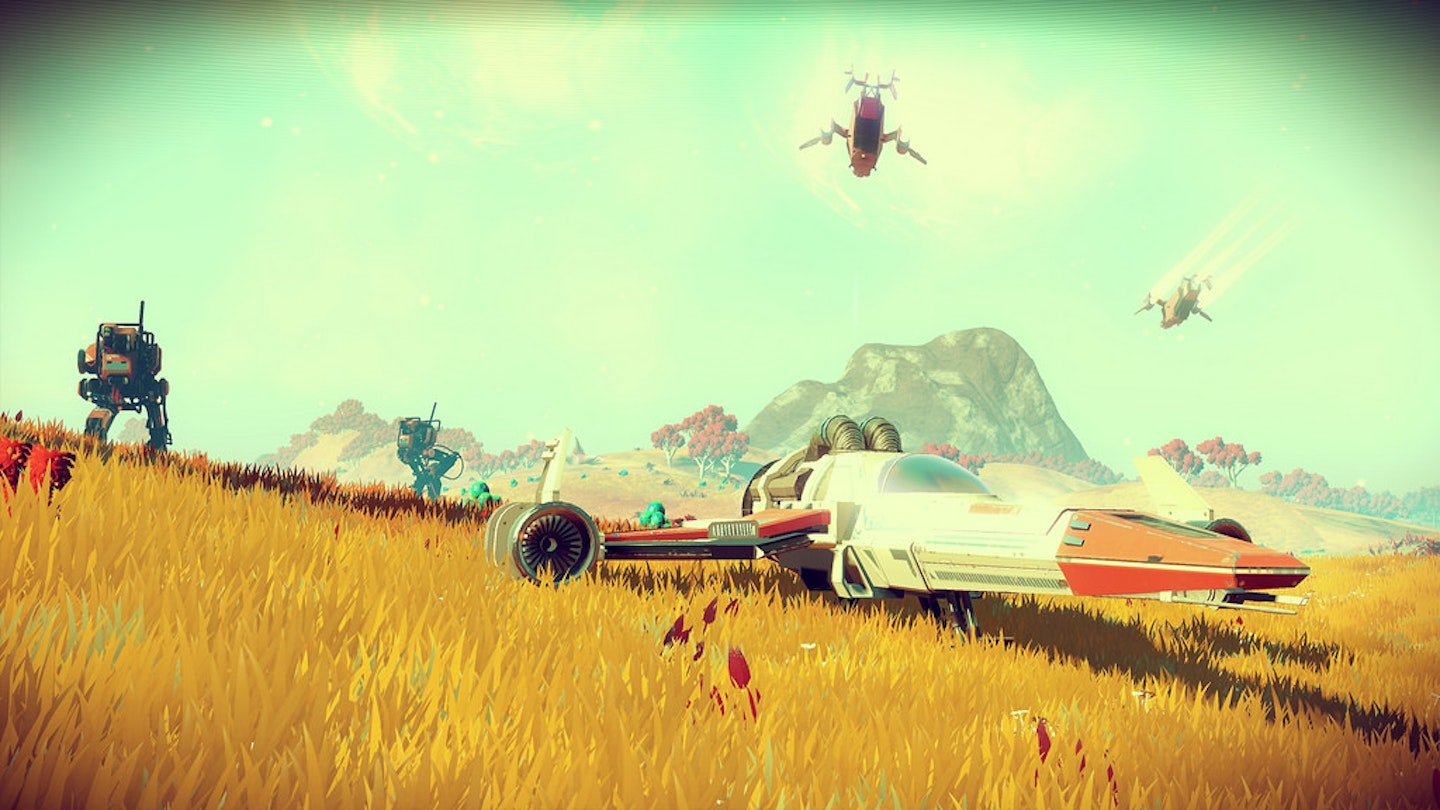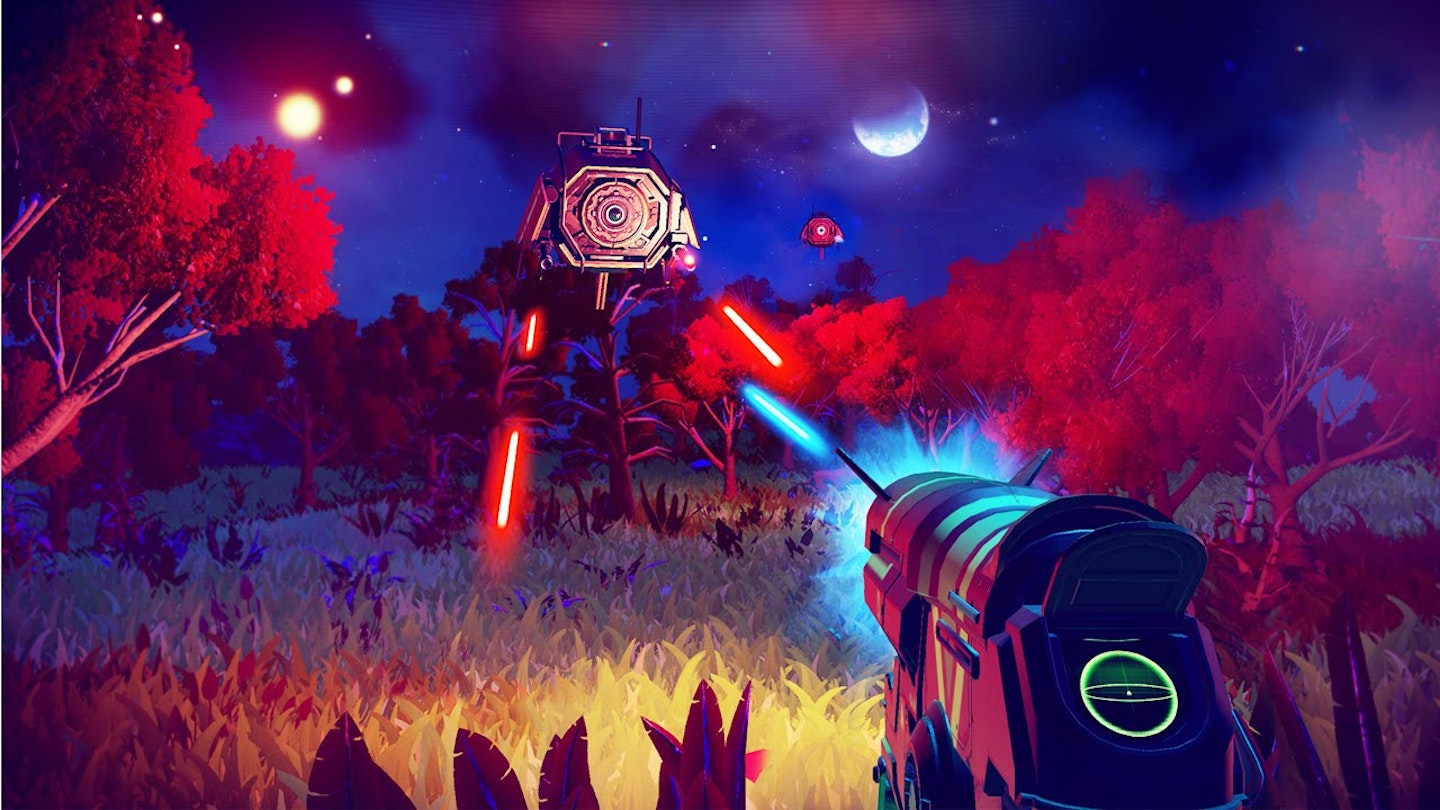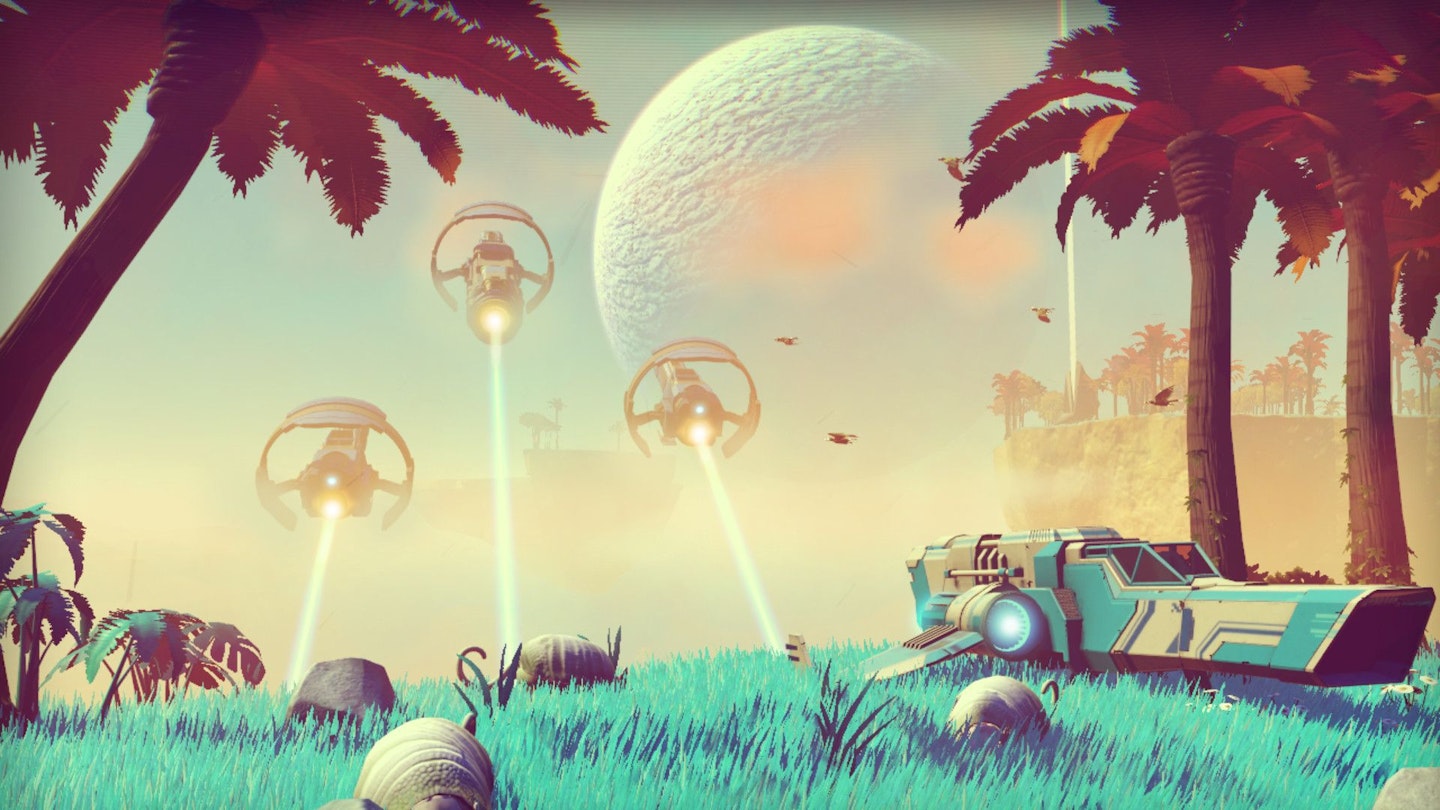No Man's Sky is shockingly vast, and its near-incalculable scale – developer Hello Games says its algorithmically generated universe contains a potential 18 quintillion planets – is hard to wrap your head around until you actually start playing.
With only a vague goal of reaching the centre of the universe, you're cast off into a cold and unforgiving universe. Frustratingly, beyond the barest whisper of a tutorial showing you how to mine for resources and combine materials into useful items, there's no driver's manual that comes with the initially tiny starship you'll be darting about the cosmos in – but that's also part of the game's charm.

It's also a game that wears its sci-fi credentials on its sleeve. When you first encounter the Atlas – a colossal alien object of unknown origin, one which may have seeded life throughout the universe – it feels like coming face to face with 2001: A Space Odyssey's Monolith; the Korvax, a mechanoid race with religiously-influenced naming conventions, seem a nod to the Cylons of the rebooted Battlestar Galactica; even 65daysofstatic's score evokes the sweeping cinematic soundtracks of sci-fi's golden age.
The joy of charting the unknown is the great delight of No Man's Sky, and the game as a whole is very much what you make of it. Aiming for the universal centre is only one option. If you prefer, you can scout entire star systems, discover new life forms, chart entire, breathtakingly beautiful worlds that each boast different environments and offer some of the most striking vistas you'll ever see.

You can fashion your role amongst the galaxies as a universal diplomat, learning the languages of the three sapient races you encounter, or an interplanetary archaeologist, hunting ruins and unearthing the endless secrets and darkly fascinating history of worlds that unfolds. You can become a mining magnate, rich beyond imagining, or you can modify your weapons and ship for maximum damage, then tackle the mysterious Sentinels that populate each planet or the space pirates inhabiting the void.
Discovery is a double-edged sword though. Because so many of No Man's Sky's systems and mechanics are left unexplained (for example, you can trade with aliens or even offer to buy their ships when docked in space stations, but there's no indication that's possible until you're stood close enough to spit on the windscreen), you can easily find yourself stuck, with little clue how to proceed, even though there may be a simple solution.
it's tempting to spend hours on just one planet, rather than leap into space.
Total freedom brings a certain paralysis of choice too – it's tempting, and more than possible, to spend hours on just one planet, rather than leap into space. That urge to soar the stars is tempered further by ship controls, which make actually getting into a stellar dogfight with pirates somewhat frustrating, no matter how tricked out your vessel's arsenal is. No Man's Sky's concessions to the shooter genre feel like its weakest element.
There's a tendency towards repetition, too. Although the planets are all unique, the outposts and visitors you find on them aren't, leading to samey choices and encounters. The item crafting you'll need to engage in (for ship fuel at the very least) can rapidly turn into chore-like resource grinding, too.
Yet despite all this, No Man's Sky is absorbing and engaging to a frightful degree. Entire days can be happily spent exploring this vast and wonderous universe, and you'll still be left wanting more. A stupendous achievement.
